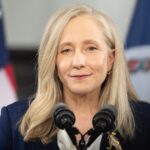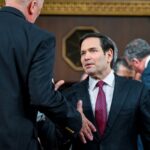
You may have heard of a company’s “ESG score”: The initials stand for environmental, social and governance — and the scores businesses receive can determine whether they have access to capital and at what interest rate, among other things.
Now, Bank Australia wants to export that kind of thinking to an individual’s choice of car.
According to Fox Business, the financial institution announced Friday that it will stop providing loans for new gas and diesel cars starting in 2025. Instead, it will only be giving loans to those buying new electric vehicles or used gas and diesel cars.
“We think that the responsible thing for us to do next, is to ensure that our vehicle lending doesn’t lock our customers in to higher carbon emissions and increasingly expensive running costs in the years ahead,” said Bank Australia’s Sasha Courville said in a statement, Fox Business reported.
Courville is Bank Australia’s “chief impact officer.” (That’s seriously his title; this isn’t the Babylon Bee.)
Trending:
“Ultimately, our announcement today is the beginning of a conversation with our customers and a signal to the wider market that if you’re considering buying a new car, you should think seriously about an electric vehicle – both for its impact on the climate and for its lifetime cost savings,” the statement continued.
This is implying that Australians haven’t thought about it. More than a few new auto buyers likely have — and they’ve said no thanks.
In 2021, 20,665 electric vehicles were sold in Australia, according to data from the Electric Vehicle Council. While that was triple the sales of EVs from the previous year, it still represents only 2 percent of auto sales in the country.
Furthermore, over 60 percent of those sales went to one type of car alone — the Tesla Model 3. At $59,900 Australian to start — almost $41,00 in U.S. dollars — that’s an expensive car for most people.
Do you expect U.S. banks to start policies like this?
Yes: 100% (3 Votes)
No: 0% (0 Votes)
Nevertheless, Courville assured the deplorables Down Under that Bank Australia still cares about them, noting the bank would offer loans for used gas cars “until there is a viable and thriving market for electric vehicles.”
“While we will cease car loans for new fossil fuel cars from 2025, we are deeply aware that we need to support people not yet able to afford an electric vehicle while the market grows,” he said.
Just not a new gas or diesel vehicle in their price range. Sorry, Aussie poors. Make more money. Learn to code, mate.
Now, this arguably has as much to do with Bank Australia’s recently announced target date of achieving net-zero emissions by 2035 as it does with any real concern over the environment. That, and several other problematic things with the move, bear noting.
First, remember “Cash for Clunkers,” the Obama-era program where the government paid you a hefty sum to turn in your fuel-thirsty older vehicle as an incentive to buy newer, more efficient models? Bank Australia has essentially instituted a program that could also reasonably be called “Cash for Clunkers” — only the effect is quite the opposite of what the Obama administration was attempting.
Bank Australia will still be giving out loans for petrol-powered autos, after all; they say they’ll be providing them “until there is a viable and thriving market for electric vehicles.” That’s not going to happen in the three years between now and when this takes effect. So, while it won’t give you money for a new gas or diesel vehicle — one that likely has the most up-to-date emissions equipment and better fuel efficiency than older models — it will lend you cash to buy an older car.
The powertrain on that, obviously, won’t just have the latest bells and whistles to help it sip fuel and emit less carbon. Furthermore, thanks to the fact the powertrain isn’t in factory-fresh condition, it likely pollutes with more carbon and consumes more fuel than it did when it was new.
Yet, Bank Australia will only lend to you if you get a new electric vehicle — which I’d predict most Australians aren’t going to do — or if you get a “clunker.” That set of perverse incentives, in other words, will help keep inefficient cars on the road much longer than they’d usually stay there, particularly if other banks follow Bank Australia’s lead. Nice work.
Second, remember this: The question isn’t if this comes to the United States, only when.
It’s not just the woke Wall Street suzerains that give out ESG scores that are attempting to set into motion a series of financial dominoes which will fundamentally transform our lives in a way that makes us poorer and reduces our quality of life.
Banks will do it, too. They’ve already succumbed to the woke agenda, with institutions like Citibank and Bank of America homing in on gun shops that sell items like so-called “high-capacity magazines.”
It’s a short step from gun-shop owners to car owners. Financial institutions have started bowing down to the deities of wokeness — partly because of their ESG scores, partly because they know where their bread is buttered.
President Joe Biden’s administration and ESG scorers want more action on electric cars? All right: Even if banks don’t forbid loans on gas-powered vehicles, they can make the terms so onerous it discourages purchases.
Arrayed against the average American — those who populate the lower, middle and upper-middle classes — is an interwoven leviathan of leftist governments, unaccountable bureaucrats, a hideously biased mainstream media, supranational organizations like the European Union and corporations like Bank Australia.
They want to sacrifice your ability to provide for yourself and your family on the altar of their agenda.
Your standard of living may be perfectly “sustainable” — especially when compared to the private-jet set that wants the unwashed masses to eat synthetic beef to solve the “climate crisis” — but they don’t care. As far as the global green new deal evangelists are concerned, your life is only important when you’re doing the things they want you to do as part of their attempt to fundamentally transform human society.
If you don’t obey, you won’t get cash for a new car. Get a clunker or figure out how to get enough money for an EV, loser.
The overlords have spoken: Save your pennies, proles.







